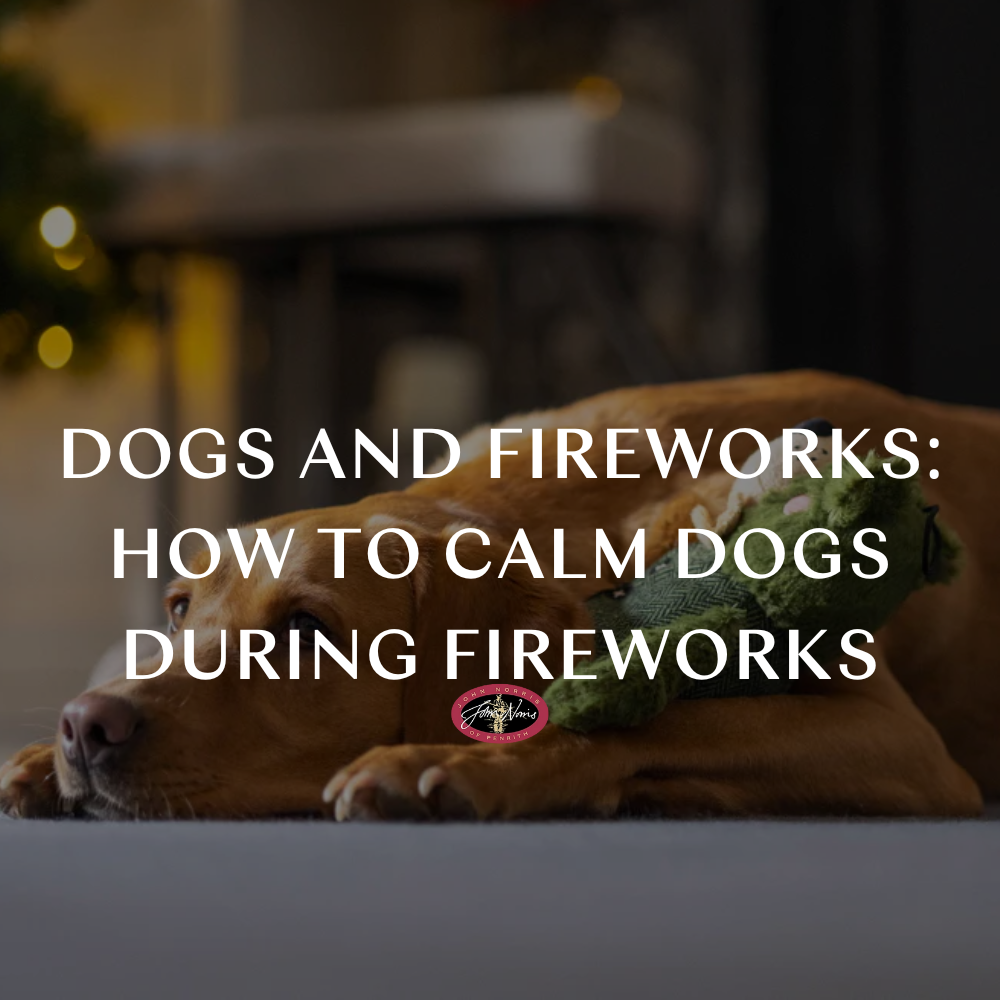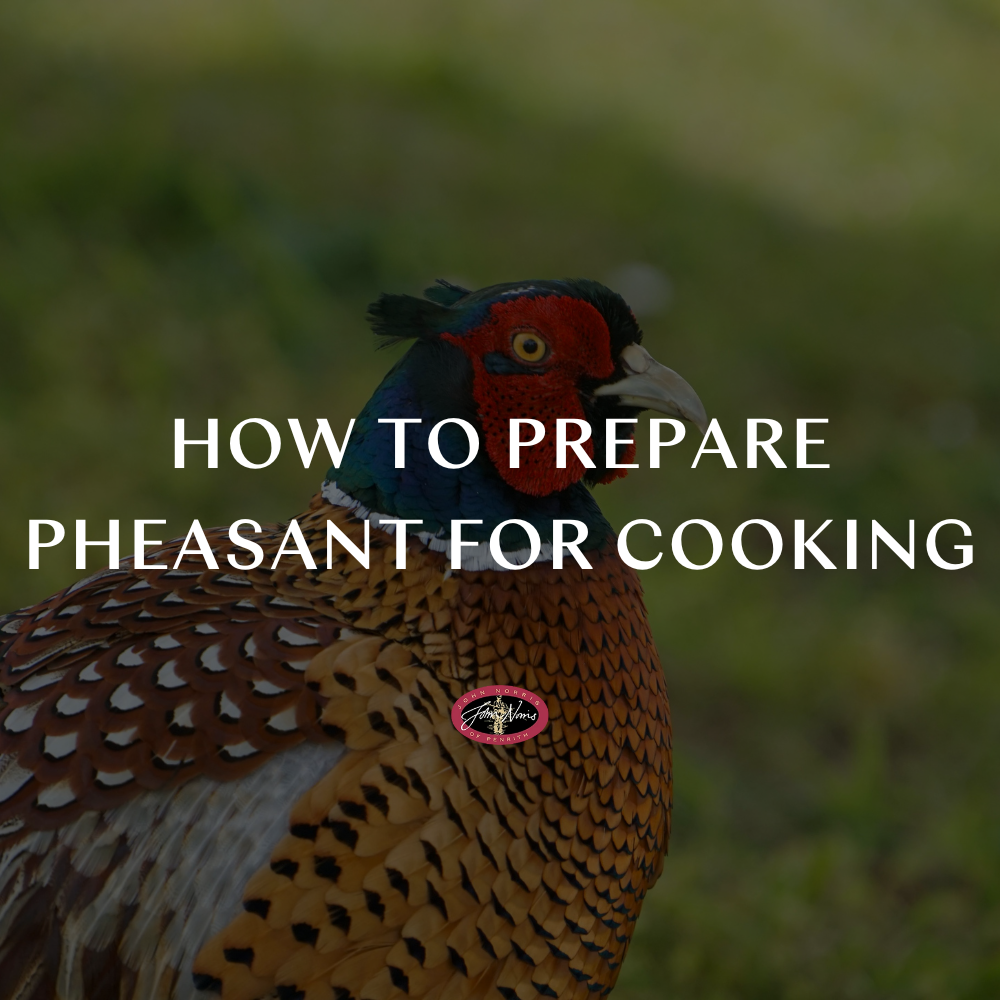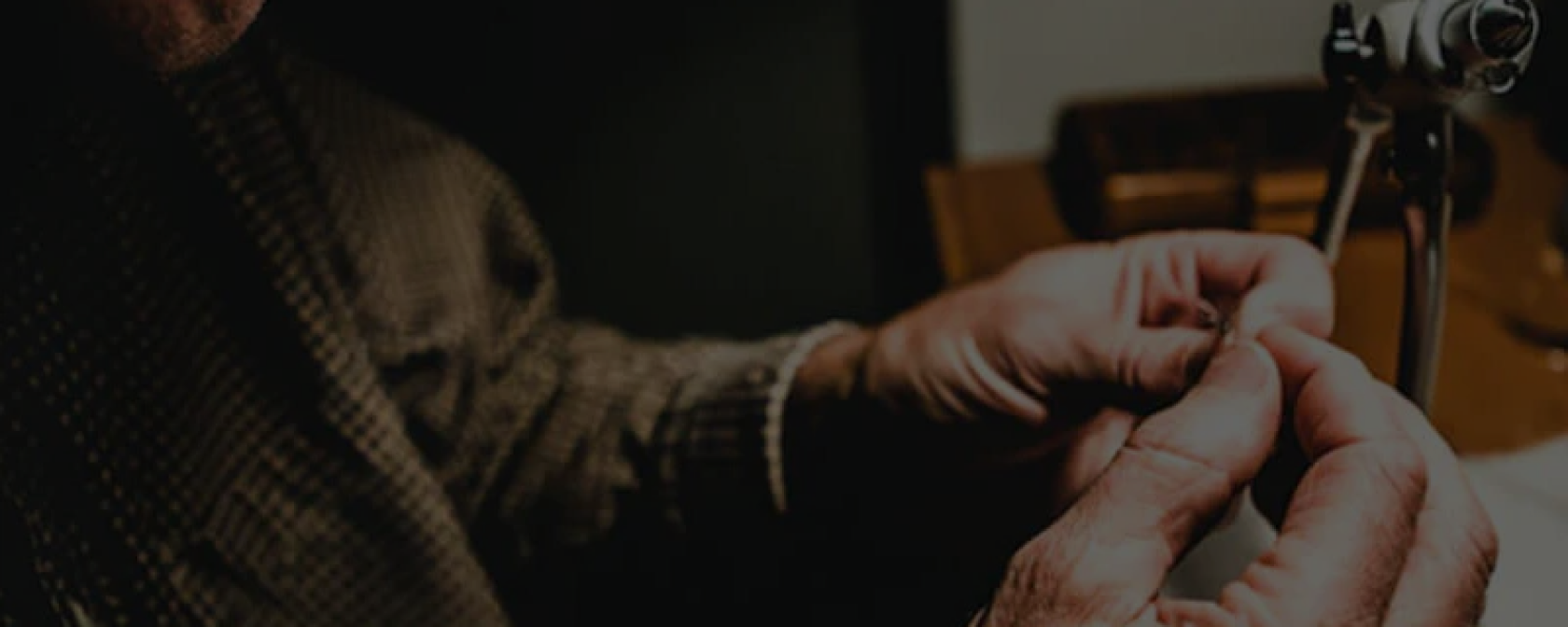Dogs and Fireworks: How to Calm Dogs During Fireworks

Dogs and fireworks are rarely a happy mix. For many dogs, Bonfire Night and fireworks displays can be confusing, loud and frightening. Those bright flashes and sudden bangs that we find exciting can feel terrifying for our four-legged friends.
The good news is that with a little preparation, you can help your dog stay calm and comfortable when the fireworks start. Here’s everything you need to know about why dogs are scared of fireworks, and how to calm dogs during fireworks season.
Why Are Dogs Scared of Fireworks?
Ever wondered why dogs hate fireworks so much? It’s mostly down to their incredible senses. Dogs hear sounds at much higher frequencies than we do, so fireworks are not just loud, they’re painfully loud to them.
On top of that, fireworks are unpredictable. They come without warning, with no rhythm or pattern, and your dog can’t tell where they’re coming from or why they’re happening. To a dog, those random bangs and flashes can feel like a threat, and their natural response is to panic.
Signs that your dog is frightened include shaking, pacing, hiding, panting, barking or trying to escape. If this sounds familiar, don’t worry, you’re far from alone. Fireworks and dogs can be a stressful combination, but there’s plenty you can do to make it easier.
Planning Ahead: First Steps Before the Fireworks Begin
Preparation is key when it comes to dogs and fireworks. A little planning in the days leading up to Bonfire Night can make a big difference.
Here’s how to get started:
1. Walk early in the day
Try to get your dog’s exercise done before it gets dark. Fireworks often start as soon as the sun goes down, so an early walk helps avoid sudden scares. A long walk can also tire them out, making them more relaxed later on.
2. Keep ID details up to date
If your dog does get spooked and runs off, having an up-to-date collar tag and microchip gives you the best chance of being reunited quickly.
3. Set up a cosy safe space
Choose a quiet room away from windows, and make it feel like a little den. Add their favourite blanket, a few toys and maybe an item of your clothing that smells like you. Dogs often settle better in a familiar-smelling, enclosed space.
4. Start gentle sound training
In the run-up to Bonfire Night, play firework sounds quietly through a speaker while giving your dog treats or playing a game. Over time, increase the volume slightly. This helps them learn that the noises aren’t scary and are just part of normal life.
5. Keep calming tools handy
When fireworks begin, background noise helps. Play soft music, the radio, or the TV at a comfortable level. Puzzle feeders and chew toys can also keep their mind busy and distract from what’s going on outside.
How to Calm a Dog During Fireworks: Live Strategies
Even with preparation, your dog may still get worried once the fireworks start. Here are some simple things you can do on the night to help them feel safe and supported.
Stay calm yourself
Dogs pick up on how we’re feeling. If you stay relaxed and chat to them in a steady voice, they’ll sense your calmness. Try not to fuss too much or over-comfort them, as this can make them more nervous.
Keep them inside
Close the windows, curtains and doors to reduce the sound and light. Keep them indoors until the fireworks have completely stopped.
Give them distractions
Offer a chew toy, a treat-stuffed Kong or a puzzle feeder to focus their energy. These simple distractions help take their mind off the noise outside. Keeping their favourite toys on hand or treating them to a new one can help too.
Use background sounds
Turn up the TV or play soothing music to help drown out the fireworks. Consistent background noise works best, so choose something steady rather than loud or dramatic.
Avoid punishment
Never tell your dog off for being scared. Fear is an instinctive response, they can’t help it. Be patient, stay calm, and reward moments of calm behaviour instead. A tasty treat such as Rosewood’s Magic Bone Dog Treats can be a great way to reinforce calm behaviour and help your dog associate fireworks with something positive.
Home Remedies for Dogs Scared of Fireworks
There are also a few natural ways to help your dog feel more at ease. These home remedies for dogs scared of fireworks can work well alongside your other efforts:
- Calming diffusers or sprays that release dog-appeasing pheromones
- Herbal calming aids containing ingredients like chamomile or valerian (ask your vet before use)
- Warm blankets or gentle massage to soothe tense muscles
- White noise machines to mask sharp bangs
Every dog is different, so it may take a little trial and error to find what works best for yours.
When to Ask for Professional Help
If your dog’s fear of fireworks is extreme, such as shaking uncontrollably, drooling, or trying to escape, it’s worth speaking to your vet. They may recommend behaviour therapy or, in some cases, short-term medication to reduce anxiety during fireworks season.
Always do this in advance of Bonfire Night so you have time to see how your dog reacts and can adjust if needed.
FAQs
Q: Will my dog ever get used to fireworks?
A: Some dogs can be gradually desensitised over time, especially if introduced carefully with recorded sounds and positive reinforcement. But many dogs will always be more sensitive than humans.
Q: Is sedation or medication safe?
A: In many cases it is safe, under vet guidance. Medication must be correctly dosed and tested in advance. Never give human sedatives or meds not prescribed by your vet.
Q: Does wrapping my dog in a tight blanket help?
A: Gentle pressure, as found in compression vests, can help reduce anxiety in some dogs. But wraps must not constrict movement or breathing. Monitor your dog’s comfort at all times.
Q: Can essential oils help?
A: Some claim calming essential oils may soothe dogs, but evidence is mixed and some oils are toxic to pets. Always get vet approval before applying any scent or diffuser.
Q: My dog hides behind furniture, should I force them out?
A: No. Let them stay where they feel safest. Encourage calm behaviour but do not drag them out. For some dogs, hiding is part of their coping mechanism.
Q: How often should I practice noise desensitisation?
A: Daily short sessions (5 to 10 minutes) work best, gradually increasing volume over days or weeks. Pair every session with a reward to build positive association.
Dogs and fireworks might never be the perfect pairing, but with a little patience, understanding and preparation, you can help your dog feel calm and secure when the sky lights up. Knowing how to calm dogs during fireworks is all about providing comfort, safety and reassurance when they need it most.
Bonfire Night can still be enjoyable for everyone, even with pets at home. By guiding your dog through their fears with kindness and care, you’ll both come through the season feeling more relaxed and confident.
For more advice on pet care and a great range of quality dog products to support your four-legged friend during fireworks season, take a look at our collection at John Norris. Let’s keep our dogs happy, safe and stress-free this Bonfire Night.













